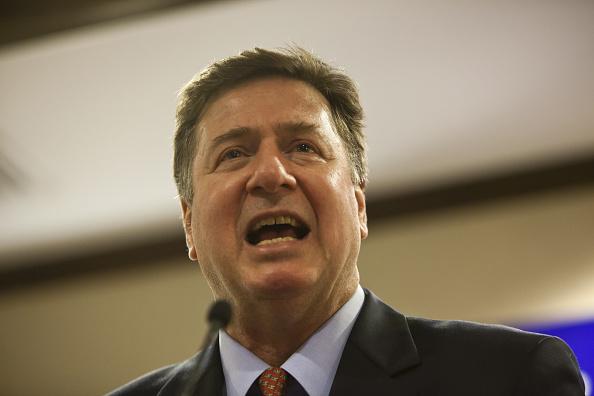“The federal government has provoked Virginians and Americans. The federal government has forgotten its limits, and we must exercise our right and duty to change it at the ballot box this fall.”
The quote is not from a candidate for this year’s midterms. Instead, former Governor of Virginia George F. Allen made the remarks at the Virginia Republican Convention held at the Richmond Coliseum in June 1994.




